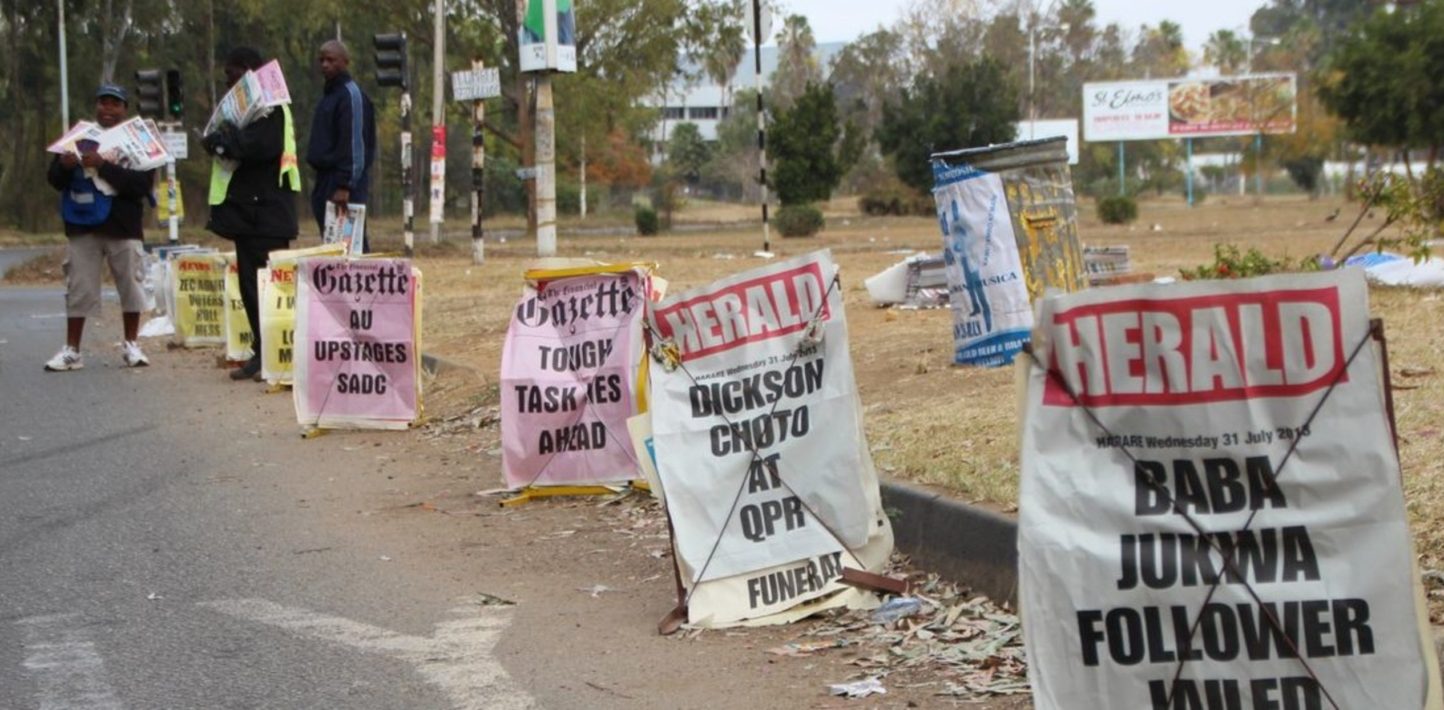The detention of three journalists arrested for publishing a story linking senior police officers to a poaching syndicate is a shocking attempt to threaten freedom of the press, said Amnesty International today, as it called for their immediate release.
Arresting journalists on the basis of ‘publishing falsehoods’ has a chilling effect that may restrict the ability of the media to expose alleged criminal activities by the authorities
Muleya Mwananyanda
The editor of the state-controlled The Sunday Mail, Mabasa Sasa, investigations editor Brian Chitemba and journalist Chinawo Farawo were arrested on 2 November 2015. They were charged with “publishing falsehoods” after implicating some senior police officers as part of a group behind elephant killings in Hwange National Park. They are set to appear in court tomorrow.
“Arresting journalists on the basis of ‘publishing falsehoods’ has a chilling effect that may restrict the ability of the media to expose alleged criminal activities by the authorities,” said Muleya Mwananyanda, Amnesty International’s Deputy Director for Southern Africa.
“These actions create a climate of fear in Zimbabwe and perpetuate impunity.”
Dozens of journalists in Zimbabwe, mainly from the private media, have been charged in the past under the Criminal (Reform and Codification) Act for “publishing falsehoods”. They were all subsequently acquitted.
These actions create a climate of fear in Zimbabwe and perpetuate impunity
Muleya Mwananyanda
The journalists were charged under Section 31 of the Criminal Law (Codification and Reform) Act and have been detained at the Harare Central Police Station since 2 November 2015. They could be detained for up to 48 hours before being taken to court.
Zimbabwe’s 2013 constitution enshrines the “freedom of expression and freedom of the media” in the country. Section 61(2) states that everyone is entitled to freedom of the media.
“Authorities must not target journalists. Media workers must be allowed to do their work without harassment or intimidation,” said Muleya Mwananyanda.
“These arrests are a shocking attempt to threaten freedom of the press and come soon after senior government officials used threatening language against critical journalists.”
BACKGROUND
The journalists were charged under Section 31 of the Criminal Law (Codification and Reform) Act and have been detained at the Harare Central Police Station since 2 November 2015. They could be detained for up to 48 hours before being taken to court.
Zimbabwe’s 2013 constitution enshrines the “freedom of expression and freedom of the media” in the country. Section 61(2) states that “everyone is entitled to freedom of the media.


